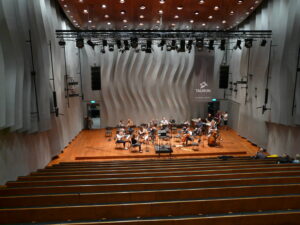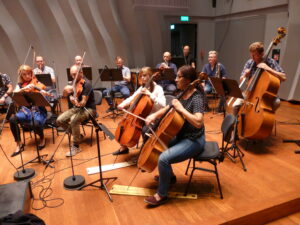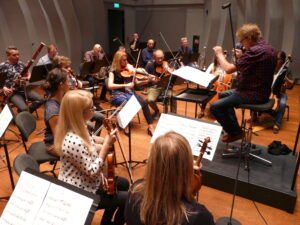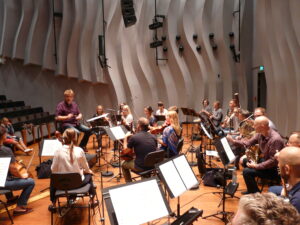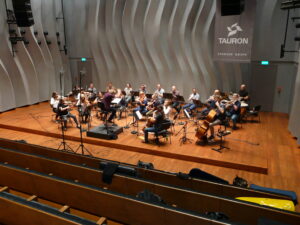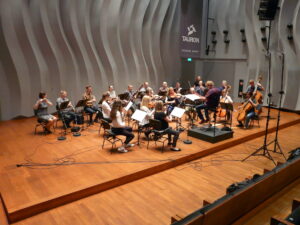
Polonaises
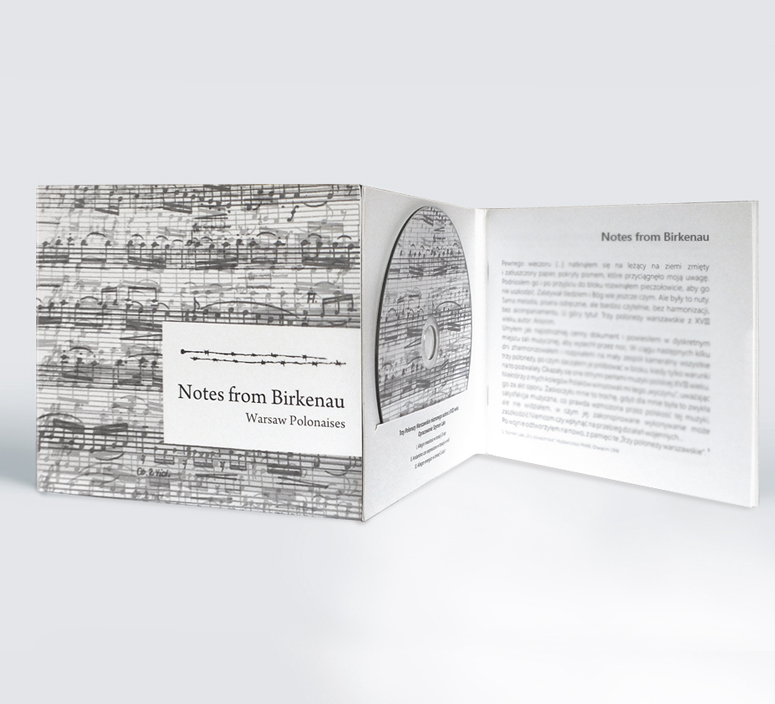
One evening … I came across a crumpled and greasy piece of paper lying on the ground, with the script that caught my eye. I picked it up and after returning to my block I straightened it carefully so as not to cause any damage. It stank of herring and God knows what else. But it was music notation. The melody only, handwritten, but legible, without harmonization, without accompaniment. The title at the top: Three 18th-century Warsaw Polonaises, author: Unknown.
I washed the precious document as carefully as possible and hung it in a discreet place in the music room to let it dry overnight. Over the next few days, I harmonized and wrote down the notes of all three polonaises to a small chamber ensemble, and then, whenever the circumstances allowed, I began to rehearse them in the block. They turned out to be real gems of the Polish 18th-century music. Some of my fellow Polish inmates congratulated me on this “stunt,” considering it an act of resistance. It surprised me a bit, because for me it was purely for musical satisfaction, although enhanced by the fact that the music was Polish, but I did not understand how its clandestine performance could harm the Germans or affect the course of hostilities…
After the war, I reconstructed these Three Warsaw Polonaises from memory.
Szymon Laks „Gry oświęcimskie”, Wydawnictwo PMAB, Oświęcim 1998
A few words about the Polonaises:
Three Warsaw Polonaises of an unknown author from the 18th century, developed by Szymon Laks (I. Allegro maestoso in D major, II. Andantino conespressione in E minor, III. Allegro energico in G major) are unusual pieces.
Sheet music was found at the Birkenau camp by Szymon Laks, who became a conductor and part of the inmates band through a series of coincidences. As a conductor, he had very little influence on his band composition, in particular he did not know whether the musicians would survive another day in the camp. Although in place of those who fell ill, were gassed or went “to the wires,” new musician arrived, it was necessary to prepare the instrumentation in such a way, that the part of one instrument could be replaced by another. As Laks recalls it:
“The sudden disappearance of one or more musicians caused ‘a void’ in chords, and often in solo parts. It forced upon myself a grimy duty to closely monitor the physical and mental health of weaker colleagues and to use a special type of instrumentation. This system, which in the musical dialect is called ‘odeon,’ allows for the performance of any song by any team composition, regardless of the presence or absence of one or even several musicians. This is achieved by writing in small notes more important parts into other voice parts, so that in the absence of the main soloist he can be replaced by one of those present who can then reading those small notes. Over time, I achieved real mastery in this peculiar art, and the ‘gaps’ in the sound that troubled me so much, appeared less and less often. Only after long months the composition of the orchestra, more and more numerous over time, became more stable, which allowed me to abandon the role of a music gravedigger.”
Szymon Laks „Gry oświęcimskie”, Wydawnictwo PMAB, Oświęcim 1998
Szymon Laks described the situation with his natural criticism and pragmatic thinking, reducing it to purely musical categories. In fact, however, the Polonaises he developed have value not only as music full of specific character and serenity, having a positive effect on the morale of prisoners playing them in hiding in their band barracks, but as an example of this incredible instrumentation system forced upon them by the camp reality. Performing music with typical Polonaise rhythms also required considerable courage in circumstances where death penalty was often ordered for much less serious “offenses” than playing forbidden Polish music. It could not affect the situation on the front line, but it could, to a certain extent, contribute to strengthening the psyche of the musicians.
Three Warsaw Polonaises, arranged by Szymon Laks, were recorded by the Orkiestra Muzyki Nowej under the baton of Szymon Bywalec in September 2019 at the Chamber Hall of the National Symphony Orchestra in Katowice.
The recreation and recording of the Three Warsaw Polonaises, thanks to the cooperation of many institutions and the involvement of many people, including Szymon Bywalec who prepared the score and conducted the musicians of the ensamble Orkiestra Muzyki Nowej, restores a fragment of the history of music from the darkest period from Europe’s history and is a testimony of its important role in the world destroyed by hatred and racism. Recorded works will allow us to learn the sound of this unique orchestra, and will also show the specificity of the camp orchestras.
Recording of the unknown to a wide audience 18th-century pieces will also significantly contribute to the commemoration of the Polish musical heritage.
